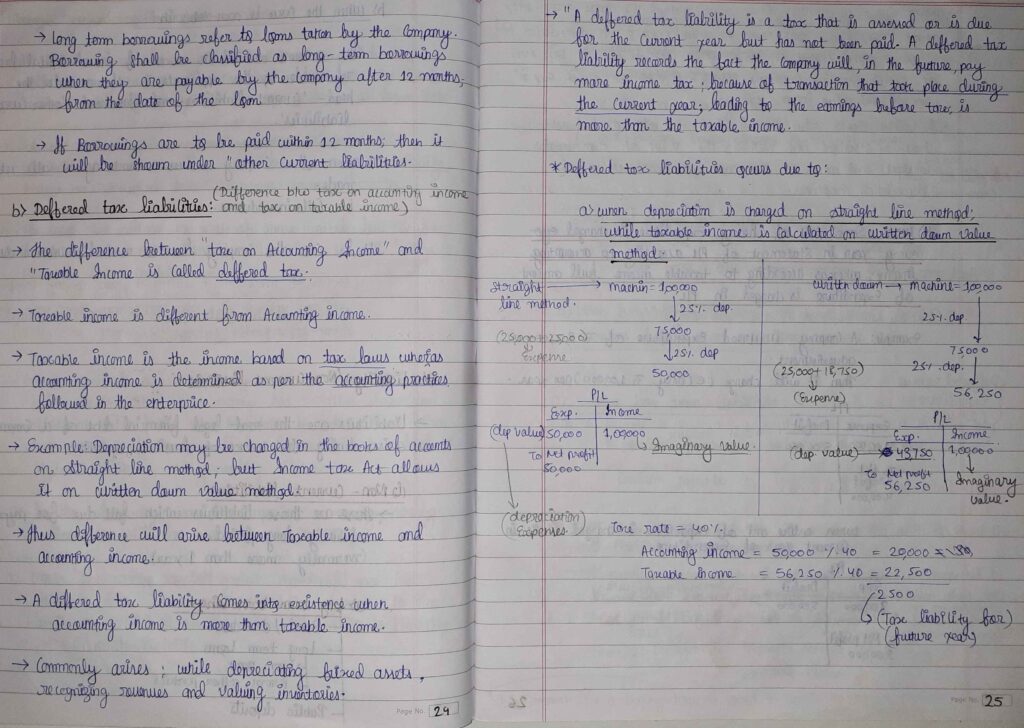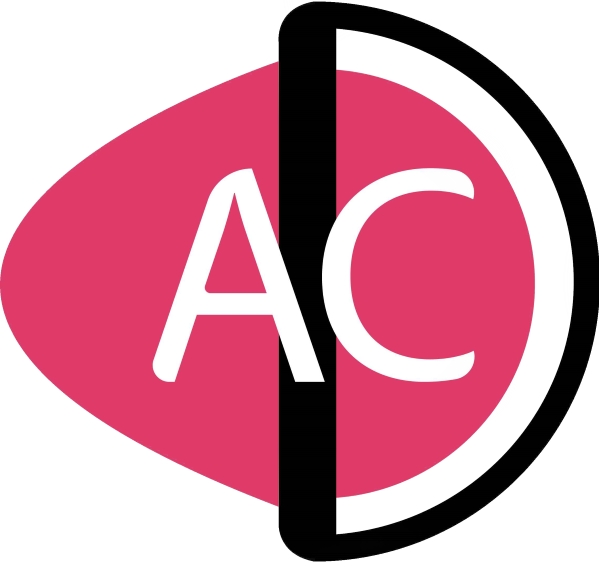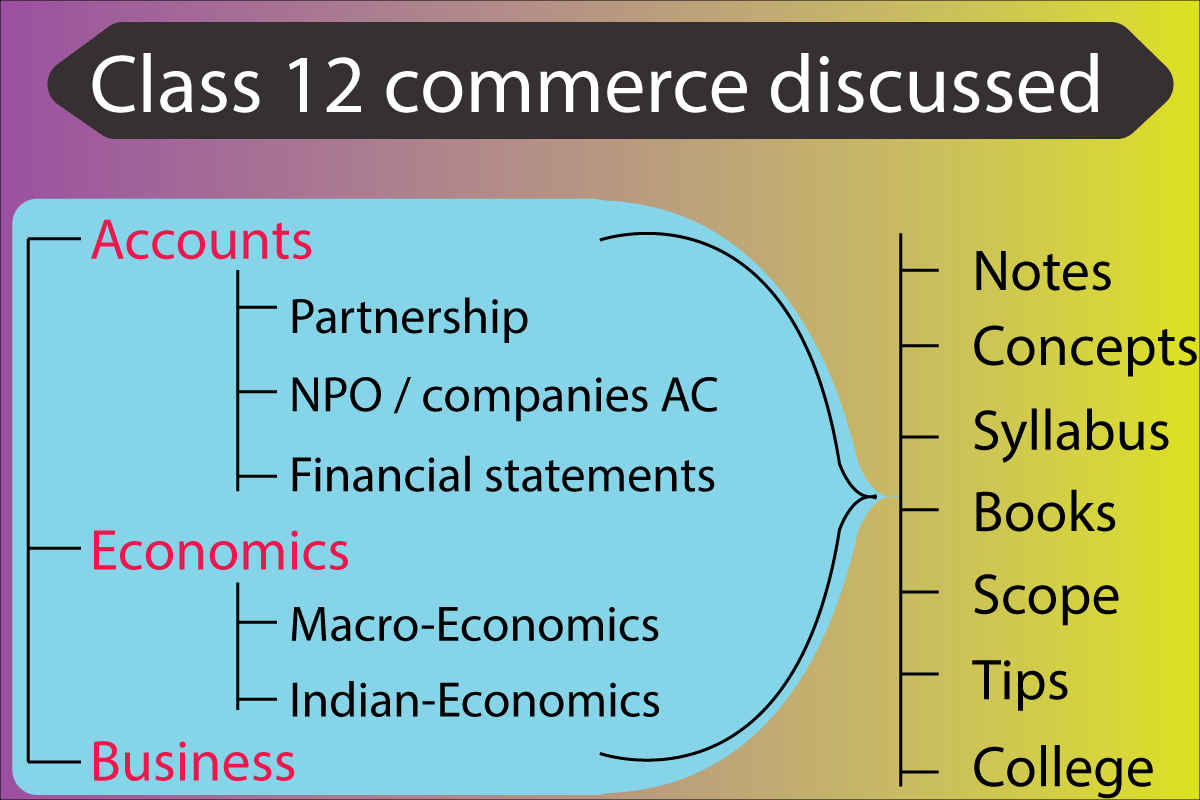Class 12 commerce seems to be hard for some students, while many don’t know about the future, scope, and preparation of commerce as a stream. In class 12 commerce, the main subject that haunts students the most is “Accountancy and Economics”.
I was also a student of commerce a few years back, and I was also having fear of Accounts and Micro-Economics. But later I changed my strategy and worked hard to make everything easy for me.
Later when I mastered accountancy, the most liked book for me was the partnership. In this article, I will be discussing the strategy to study commerce, syllabus, Books, future scope, college selection, and more.
The best way to study and score good marks in commerce is to focus mainly on “Accountancy and Economics”. Instead of reading from the books, a separate notes of each subject and chapter should be made.
AC Digital Desk
Why you should study commerce after class 10th?
Generally, you can get the commerce stream in two ways- “First by your choice and sometimes schools allot commerce stream by their own “
Many students have fear of maths and science and the only option which remains for them is the Commerce or arts. But let me tell you that the commerce stream may be easy when compared to the science stream, but it’s not easy as you people think.
In the commerce stream, there are three main subjects and there may be two other subjects such as language and optional.
If any student has fear of mathematics and science and doesn’t want to pursue arts, they can easily opt for commerce as the commerce stream will only require some basic mathematical concepts such as addition, subtraction, multiplication, percentage, and some basic mathematical steps.
Subjects in Commerce stream explained in detail
As a student of commerce, you will need to study three main subjects both in classes 11 and 12-
- Accountancy
- Economics
- and, Business
| Class 11 commerce | Class 12 commerce |
|---|---|
| Accountancy | -Partnership -Financial statements -Accounting for a Nonprofit organization |
| Business studies | Business studies |
| -Micro-economics -Statistics | -Macro-economics -Indian economy |
Accountancy– Accountancy and economics are the most feared subjects for the students, as this subject needs lots of concepts and attention. In accountancy, you will learn some basic types and properties of accounts, debit & credit rules, and account & balance sheet preparations.
In the beginning part of the accountancy, there will be lots of theory, which will need to be memorized and as you will move ahead towards the bottom chapters there will be lots of numerical.
In the class 11 commerce, there will be less numerical when compared to the class 12 commerce. As because of the numerical, the class 11 accountancy will be easy for you to pass on.
Economics- In the economics section, it may be tough for you to understand its concept, as you may be studying the economics of this level for the first time in your life after class 10th.
Always remember, that you cannot treat economics as same as the accountancy, as the economics principle is always based on assumptions and this is why it is always weird to read and learn economics.
Business- Business may become the easiest subject only if you are a good learner. The business subject will contain only theories, which need to be learned as it is written in your book.
You may also frame answers on your own, but there are some main keywords that need to be remembered as the examiner will always be looking for the main keywords in your copy.
Difference between Class 12 commerce and Class 11 commerce
Class 11th commerce
Class 12th commerce is obviously harder when compared to class 12 commerce. In class 11 commerce, you have to read- Accountancy, economics (Microeconomics and statistics), and business organization.
Class 11th Accountancy-
In class 11 commerce, the accountancy will contain a good amount of theory and basic part of numerical-based questions. In the class 11 commerce, there will be the following chapter:
- Meaning and objectives of accounting
- Basic accounting terms
- Accounting principles
- Process and bases of accounting
- Accounting standards and international financial reporting standards
- Accounting equations
- Double-entry system
- Origin of transaction
- Books of original entry (Journal)
- Accounting for goods and service tax (GST)
- Books of original entry (cash book)
- Books of original entry (special purpose subsidiary book)
- Ledger
- Trial balance and error
- Bank reconciliation statement
- Depreciation
- Provisions and reserves
- Bills of exchange
- Rectification of errors
- Capital and revenue
- Financial statement
- Financial statement with adjustments
- Accounts from incomplete records
Class 11th Business studies-
The class 11th business studies consist of two parts:
Part A (Foundations of business)
- Nature and purpose of business
- Forms of business organization
- Private, public, and global enterprises
- Business services
- Emerging modes of business
- Social responsibility of business and business ethics
Part B (Finance and trade)
- Sources of business finance
- Small business and enterprises
- Internal trade
- International trade
Class 11th Economics-
The class 11 economics consists of two parts:
Micro-economics
- Economics and economy
- Central problems of an economy
- Consumer’s equilibrium utility analysis
- Consumer’s equilibrium Indifference curve
- Theory of demand
- Price elasticity of demand
- Production function and returns to a factor
- Concepts of cost
- Concept of revenue
- Producer’s equilibrium
- Theory of supply
- Forms of market
- Market equilibrium under perfect competition and effects of shifts in demand and supply
Statistics for economics
- Concept of economics and significance of statistics in economics
- Collection of data
- Census and sample method of collecting data
- Organization of data
- Presentation of data (Textual and tabular presentation)
- Diagrammatic presentation of data (Bar diagrams and pie diagrams)
- Frequency diagrams- histogram, polygon, and ogive
- Arithmetic line graph or time series graph
- Arithmetic mean
- Median and mode
- Measures of dispersion
- Correlation
Class 12th commerce
Class 12th commerce consists of the following subjects:
- Accounts– Partnership, Financial statements, and NPO
- Economics– Macroeconomics, and the Indian economy
- Business studies
Class 12th Accountancy
Class 12th accounts is consists of- Partnership, Financial statements, and NPO
Partnership
- Accounting for partnership firms
- Change in profit sharing ratio among the existing partners
- Admission of a partner
- Retirement or death of a partner
- Dissolution of a partnership firm
Financial statements
- Financial statements of companies as per schedule III
- Financial statements analysis
- Tools for financial analysis: comparative statements
- Common size statements
- Accounting ratios
- Cash flow statements
NPO
- Financial statements of not-to-profit organization
- Company accounts-Issue of shares
- Company accounts-Issue of debentures
- Company accounts-Redemption of debentures
Class 12th Economics-
Class 12th economics consists of two parts: Macroeconomics & Indian economy
Macroeconomics
- Basic concepts of macroeconomics
- National income and related aggregates
- Methods of calculating national income
- Money
- Banking
- Aggregate Demand, Aggregate Supply, and related concepts
- Short-run equilibrium output
- The problem of deficient demand and excess demand
- Government budget and the economy
- Foreign exchange rate
- Balance of payments
Indian Economy
- Indian economy on the eve of Independence
- Five-year plan in India
- Features, problems, and policies of agriculture
- The strategy of industrial growth (1947-1990)
- India’s foreign trade
- Economic reforms since 1991 or new economic policy
- Poverty
- Human capital formation in India
- Rural development
- Employment and unemployment
- Infrastructure
- Environment and sustainable development
- Development experience in India, Pakistan, and China
Class 12 Business studies
Part A (Principles and functions of management)
- Nature and significance of management
- Principles of management
- Business environment
- Planning
- Organizing
- Staffing
- Directing
- Controlling
Part B (Business finance and marketing)
- Financial management
- Financial market
- Marketing management
- Consumer protection
Class 11th & 12th commerce syllabus
Click on the below button to download the Commerce syllabus of both classes 11 and 12:
You can also download the official and updated syllabus by clicking here.
Books for Class 11 and Class 12 commerce
So below are the best books for the CBSE class 11 and 12th commerce:
Commerce class 11th books
Accounts: Arya publications- DK Goel, Rajesh Goel, Shelly Goel
Business: VK Goel Publications- Poonam Gandhi
Economics: VK publications- TR Jain, VK Ohri
Commerce class 12th books
Partnership, NPO, Financial statements – Arya publications- DK Goel, Rajesh Goel, Shelly Goel
Business studies– VK Goel Publications- Poonam Gandhi
Economics– VK publications- TR Jain, VK Ohri
How to study for Class 12 commerce?
The best strategy for class 12 commerce are discussed below:
- The main preparations should start from class 11th onwards.
- You should clear your doubts and learn all the concepts of class 11th accounts, as they will be required for further studies in class 12th.
- Try to learn the main keywords, as it will create a good impression on the examiner.
- Try to practice lots of questions of accountancy and economics, as it will help you to maintain your speed in the examination.
- A separate note of each subject should be prepared with deep explanations.
Best YouTube channel to study Accounts
Here is the list of top youtube channels to study commerce:
How to prepare Class 12 commerce notes?
You can prepare the notes for your commerce stream in two ways, One is the long method and the other is the shortcut method.
Long method
In this method, you have to make a separate notebook and note down all the points in your local language, and also you can use a highlighter or pen of different colors to mark the important keywords.
You should take the help of your book and the Internet to prepare this note and try to make a deep explanation of everything you have in your book as shown in the below image:

Short-cut method
In the shortcut method, there is no need to make a separate notebook, but you have to make notes on a piece of a single piece of paper and place it in your book where it is required. This is the most time-saving method for preparing notes.
In this method, do not forget to mention the page number on the single piece of paper, as the pages sometimes may come out of the book, making confusion about where it was placed.
If you have encountered a problem anywhere in your book, just take out a page and write about that topic in detail and place it in between the appropriate pages of your book.
What to do after Class 12 commerce?
After the class 12 commerce, the best thing to do is an “Undergraduate course like B.com”. There are various other opportunities for the commerce students, which are as follows:
- CA
- CS
- CMA
- BBA/ MBA
- LLB
Top best commerce college in India
- Delhi University
- Shri ram college of commerce Delhi
- Benaras Hindu university
- Madras university
- Loyola College Chennai
- Lovely professional university
- Chandigarh university

